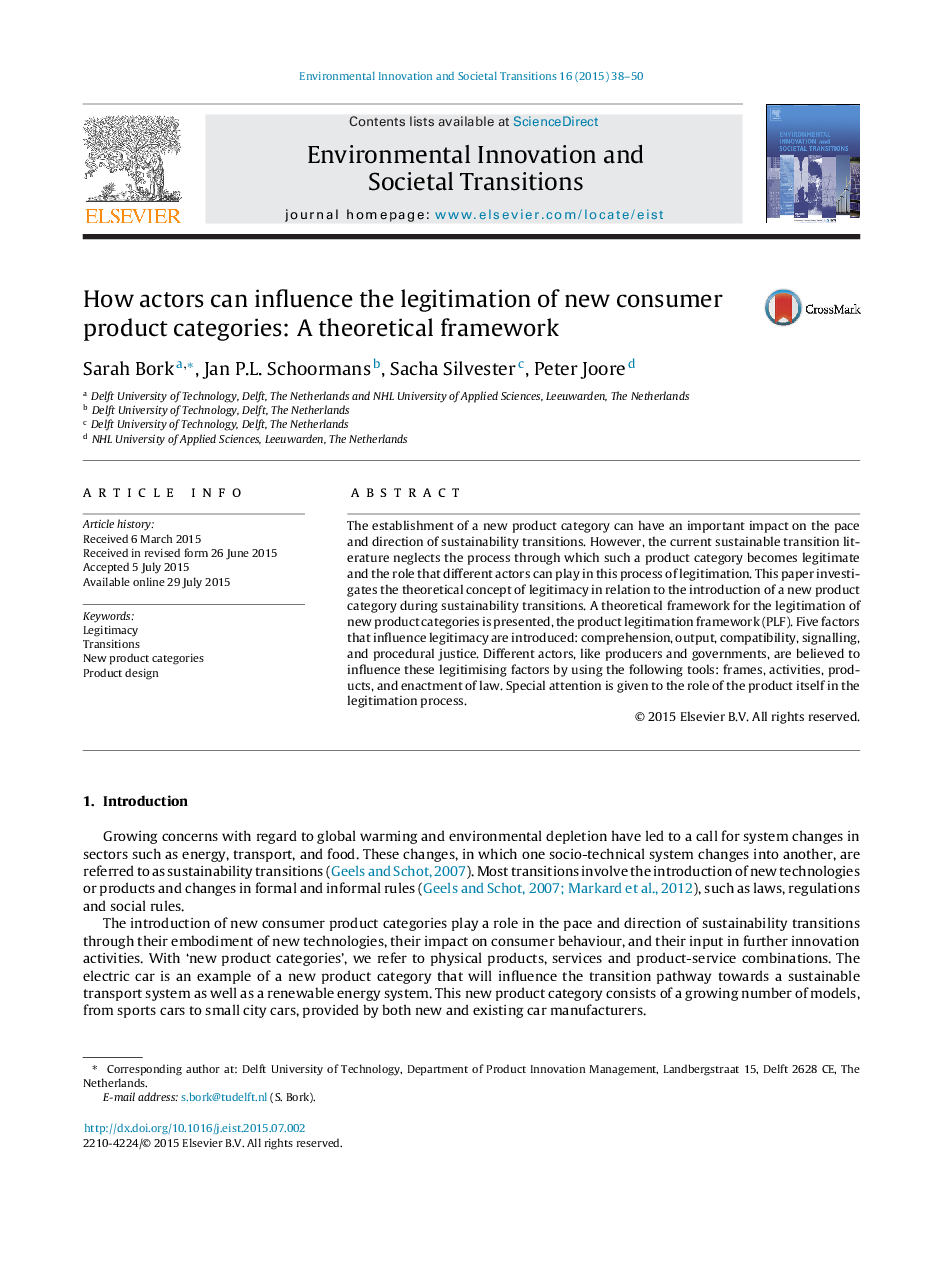| Article ID | Journal | Published Year | Pages | File Type |
|---|---|---|---|---|
| 6559383 | Environmental Innovation and Societal Transitions | 2015 | 13 Pages |
Abstract
The establishment of a new product category can have an important impact on the pace and direction of sustainability transitions. However, the current sustainable transition literature neglects the process through which such a product category becomes legitimate and the role that different actors can play in this process of legitimation. This paper investigates the theoretical concept of legitimacy in relation to the introduction of a new product category during sustainability transitions. A theoretical framework for the legitimation of new product categories is presented, the product legitimation framework (PLF). Five factors that influence legitimacy are introduced: comprehension, output, compatibility, signalling, and procedural justice. Different actors, like producers and governments, are believed to influence these legitimising factors by using the following tools: frames, activities, products, and enactment of law. Special attention is given to the role of the product itself in the legitimation process.
Keywords
Related Topics
Life Sciences
Environmental Science
Management, Monitoring, Policy and Law
Authors
Sarah Bork, Jan P.L. Schoormans, Sacha Silvester, Peter Joore,
